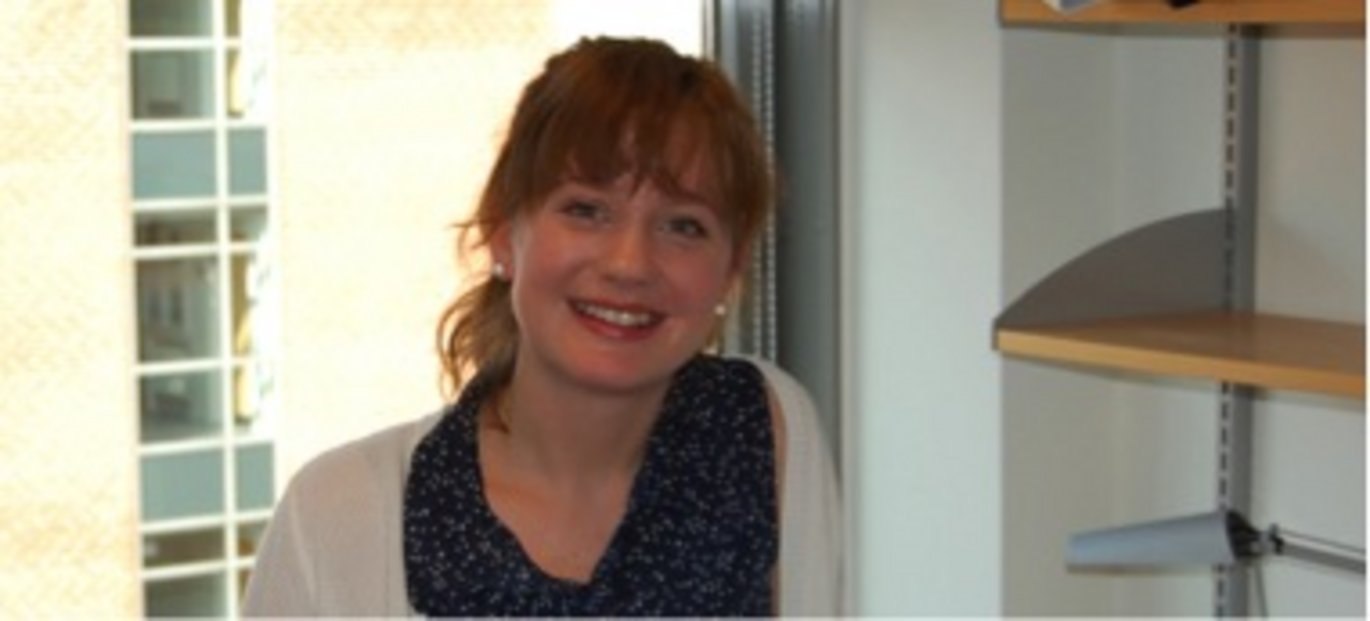How to manage staff members at ‘ground level’?
On 1 February, Mari Svendsen initiated her PhD studies at the Department of Psychology and Behavioural Sciences, where she will examine the management of staff members at ‘ground level’. The ability of executives to successfully observe and identify their staff members’ frustrations and wishes could result in better bottom lines for companies and help prevent illegal and unethical conditions at workplaces.

In traditional production-based companies, staff members in the production halls are usually the ones aware of potential problems within the company – rule breaches or technical malfunctions – and they are often also the ones who have ideas for improvements. Consequently, they constitute a valuable resource that can have a significant and positive impact on the company’s bottom line, providing that executives and the management are able to identify and utilise the staff members’ suggestions.
However, the physical and social distance between the management and the staff is often vast, which may hamper both trust and communication between the two. So how can executives utilise staff’s inputs in the interest of the company? And what type of employee is capable of getting messages across to the management?
These are some of the questions that Mari Svendsen will examine as a newly hatched PhD student. Since 1 February, she has been employed at the Department of Psychology and Behavioural Sciences and has been affiliated with the research group LINOR (Leadership and INfluence in ORganizations) that conducts research in occupational – and organisational psychology.
Set to solve unethical problems
Whenever staff members either refrain from informing the management about work-related problems or simply fail to get their messages across, it can breed unhealthy and sometimes even illegal workplace practices. Whistle-blower schemes are often suggested as the solution to these problems, but according to Mari Svendsen, companies should explore other options first.
- One of the goals of my research is to avoid that whistle blowing becomes necessary, and this will not happen unless staff members cannot communicate their ideas for improvements – or downright rule breaches – to the management. You can prevent this by optimising the relations between staff and the mid-level management, Mari Svendsen explains.
Employee confidence can prove instrumental
In her research project, Mari Svendsen will examine a large, international company based in Norway. Overall, 200 staff members and 50 mid-level managers will answer questionnaires about their work. In this context, the mid-level managers are of particular interest, as the distance between them and the staff appears to be vast, despite the fact that they constitute the closest link to the staff working at ground level.
- We are currently unaware of which factors determine whether an employee is successful in getting a message across to the mid-level management, so at the moment I am working on a number of hypotheses. For instance, it can depend on the individual employee’s level of ‘self-efficacy’ – confidence in his or her own abilities in relation to management demands, says Mari Svendsen.
The collecting of data will commence in August, and in order to guarantee the reliability of the results, the process will be repeated a year later within the same company.
One year of clinical experience under her belt
Mari Svendsen’s interest in occupational – and organisational psychology began with a slight detour. During her Master’s degree programme, she got a one-year internship at the Anxiety Disorder Clinic for Children and Adolescents at the Department of Psychology and Behavioural Sciences, which gave her both theoretical and practical experience with anxiety patients. The experience opened her eyes to the research environment, and to the clinical aspects of psychology. However, it was a different aspect of psychology that convinced her to pursue a PhD degree:
- I realised how much the workplace and the manager mean to the individual. This is where my interest in management - and how to improve it – began, says Mari Svendsen, whose interest in the clinical aspect of psychology has not faded:
- I guess I am more clinically oriented than the average organisational – and occupational -psychologist is, and I obviously hope that I will somehow be able to include this in my research.
The prospect of teaching was also one of the things that made the PhD study more appealing to Mari Svendsen, who has always relished working on major projects.
Holiday turned into a PhD application
It is no coincidence that Mari Svendsen will examine a Norwegian company; she is originally from Norway, and did not move to Denmark until the age of 18 when she started to study psychology. Her affection for both the study programme and the city of Aarhus has grown ever since, which is why she decided to apply for a PhD at the university:
- Since I was a child, I have visited Denmark almost every year, and I have always loved spending time in Aarhus and Denmark. Therefore, it was an easy decision for me to choose Aarhus University as the place where I would start my studies.
Further information
Associate professor Thomas Jønsson is the main counsellor, and Professor Hans Jeppe Jeppesen is the co-counsellor.








